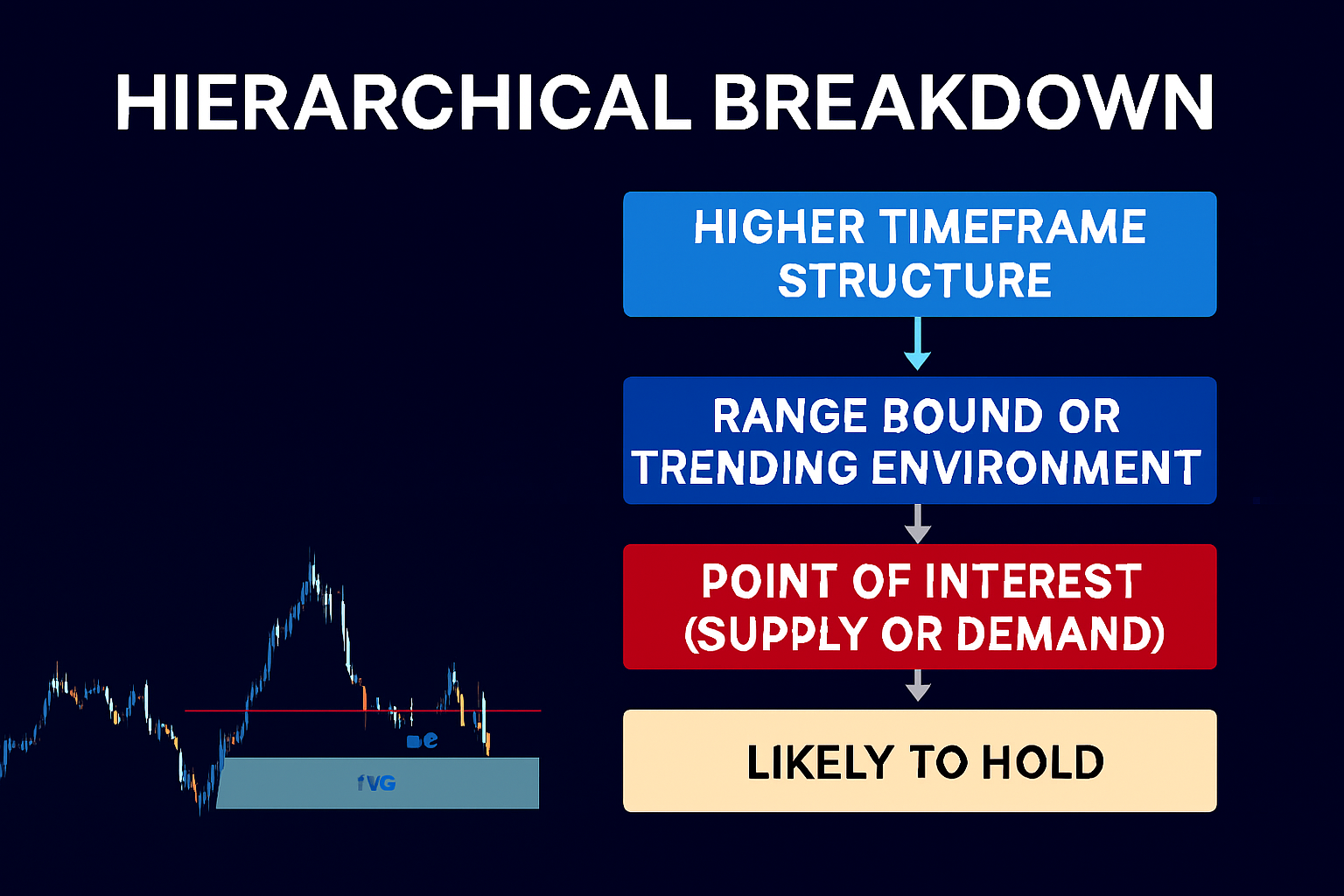In the competitive world of affiliate marketing, SEO (Search Engine Optimization) is crucial for driving organic traffic and boosting your commissions. However, common SEO mistakes can seriously hinder your success and drain your profits. Here’s a guide to seven key SEO errors that affiliate marketers must avoid.
>> Here’s the Proven Way to Make $100-$200 Daily with 0 Investment – Watch This FREE Video and Start Now >>

1. Neglecting Keyword Research
Effective SEO starts with thorough keyword research. Many affiliate marketers skip this step or fail to target relevant keywords. Instead, use tools like Google Keyword Planner, SEMrush, or Ahrefs to identify high-volume, low-competition keywords related to your niche. Incorporate these keywords strategically into your content, meta descriptions, and titles to improve your visibility on search engines.
2. Ignoring On-Page SEO Factors
On-page SEO is vital for ranking higher in search results. This includes optimizing title tags, meta descriptions, header tags, and URL structures. Ensure that your primary keywords are included in these elements and that your content is organized logically. A well-structured page not only helps search engines understand your content but also enhances user experience.
3. Overlooking Mobile Optimization
With the increasing use of smartphones, mobile optimization is more important than ever. Many affiliate marketers still neglect to ensure their websites are mobile-friendly. Google prioritizes mobile-first indexing, meaning that a non-responsive site can significantly impact your rankings. Use responsive design principles to make sure your site performs well on all devices.
4. Failing to Build Quality Backlinks
Backlinks from reputable sites signal to search engines that your content is valuable and trustworthy. However, some affiliate marketers focus too much on quantity rather than quality, leading to poor-quality or spammy backlinks that can hurt your SEO. Focus on earning high-quality backlinks from relevant and authoritative sources to build your site’s credibility and improve its search ranking.
5. Using Duplicate Content
Duplicate content can confuse search engines and dilute the value of your pages. This is a common issue in affiliate marketing where content might be replicated across multiple affiliate sites. To avoid this, create unique, original content for each page and avoid duplicating product descriptions or reviews. Use canonical tags to indicate the preferred version of a page if duplicates are unavoidable.
6. Neglecting Technical SEO
Technical SEO involves optimizing your site’s backend to ensure it’s easily crawlable and indexable by search engines. Common technical issues include slow loading times, broken links, and improper use of robots.txt files. Regularly audit your site for technical issues, use tools like Google Search Console to identify and fix errors, and ensure your site has a clean, efficient code structure.
7. Overlooking User Experience (UX)
User experience is a crucial factor in SEO. A site that’s difficult to navigate, slow to load, or has a poor design can frustrate users and lead to higher bounce rates, which negatively impacts your rankings. Focus on creating a user-friendly experience with intuitive navigation, fast load times, and engaging, well-organized content. A positive UX not only helps with SEO but also encourages visitors to stay longer and convert.
>> Here’s the Proven Way to Make $100-$200 Daily with 0 Investment – Watch This FREE Video and Start Now >>
Neglecting Keyword Research
Keyword research is foundational for successful affiliate marketing. Yet, many marketers overlook this crucial step, leading to missed opportunities. Here’s why neglecting keyword research can be detrimental:
- Missed Target Audience: Without proper keyword research, you may not reach your target audience effectively, missing potential customers who use specific search terms.
- Low Search Visibility: Failing to identify high-traffic, low-competition keywords can result in low search engine rankings and diminished visibility.
- Inefficient Content Creation: Without knowing what keywords your audience searches for, you risk creating content that doesn’t resonate or perform well in search engines.
- Reduced ROI: Ineffective keyword targeting can lead to poor conversion rates, reducing your overall return on investment.
- Increased Competition: Ignoring keyword research means you might be competing in oversaturated markets without the right strategies.
- Wasted Resources: Investing time and money into SEO without targeting the right keywords can lead to inefficient use of resources.
- Unoptimized Ad Campaigns: Keywords are essential for successful PPC campaigns. Neglecting them can lead to wasted ad spend and poor campaign performance.
Effective keyword research is vital for maximizing your affiliate marketing efforts. Avoiding this step can limit your reach, reduce visibility, and waste resources. Prioritize keyword research to enhance your SEO strategy and drive better results.
Ignoring On-Page SEO Factors
On-page SEO is essential for improving your website’s search engine rankings. Ignoring these factors can have a significant impact on your affiliate marketing results. Here’s why:
- Reduced Visibility: Poorly optimized title tags and meta descriptions can lead to lower click-through rates and reduced visibility in search results.
- Unoptimized Content: Failing to use keywords strategically in your content can make it harder for search engines to understand and rank your pages.
- Poor User Experience: Neglecting header tags and a logical content structure can make your site harder to navigate, leading to higher bounce rates.
- Ineffective Internal Linking: Without proper internal linking, search engines may struggle to crawl your site effectively, impacting overall site visibility.
- Weak URL Structure: Non-optimized URLs can affect your site’s ability to rank for relevant keywords and can confuse both users and search engines.
- Lack of Mobile Optimization: Ignoring mobile-friendly design can impact your rankings as search engines prioritize mobile-first indexing.
Ignoring on-page SEO factors can limit your site’s performance and visibility. By optimizing title tags, content, and site structure, you can improve search rankings and enhance user experience, leading to better affiliate marketing results.
Overlooking Mobile Optimization
Mobile optimization is crucial for affiliate marketing success. Ignoring this aspect can have serious consequences:
- Decreased Traffic: Non-mobile-friendly sites deter users, leading to reduced traffic and fewer potential customers.
- Lower Search Rankings: Google prioritizes mobile-first indexing, so a non-responsive site can drop in search rankings.
- Higher Bounce Rates: A poor mobile experience can lead to higher bounce rates, as users quickly leave sites that are difficult to navigate on their devices.
- Reduced Conversions: A site that isn’t optimized for mobile can negatively impact conversion rates, as users may abandon their purchases due to a frustrating experience.
- Negative User Experience: Slow load times and unresponsive design lead to dissatisfaction and can damage your brand’s reputation.
- Lost Revenue Opportunities: Without mobile optimization, you miss out on significant revenue potential from mobile users.
Mobile optimization is essential for capturing and retaining users. Ensure your site is mobile-friendly to improve rankings, user experience, and conversion rates, enhancing your affiliate marketing success.
Failing to Build Quality Backlinks
Backlinks are a critical component of SEO, but many affiliate marketers neglect their importance. Here’s why failing to build quality backlinks can be detrimental:
- Lower Search Rankings: Without high-quality backlinks, your site may struggle to rank well in search engine results.
- Reduced Authority: Backlinks from reputable sites enhance your site’s authority. Lack of these can limit your credibility and visibility.
- Missed Traffic: Quality backlinks drive referral traffic. Without them, you miss out on valuable potential visitors.
- Slow Growth: Without a strong backlink profile, your site’s growth and SEO performance may stagnate.
- Competitive Disadvantage: Competitors with strong backlink profiles will likely outperform you in search rankings and traffic.
Building quality backlinks is essential for SEO success. Focus on acquiring high-authority links to improve rankings, increase traffic, and stay competitive in affiliate marketing.
>> Here’s the Proven Way to Make $100-$200 Daily with 0 Investment – Watch This FREE Video and Start Now >>
Using Duplicate Content
Duplicate content can significantly undermine your affiliate marketing efforts. Here’s why you should avoid it:
- Search Engine Penalties: Search engines like Google penalize sites for duplicate content, which can lead to lower rankings and reduced visibility.
- Diluted Authority: When duplicate content exists across multiple pages, it can dilute the authority of your pages, impacting their effectiveness in ranking.
- User Experience Issues: Duplicate content can frustrate users who expect unique and valuable information, leading to a poor user experience.
- Reduced Engagement: If users find the same content repeatedly, they’re less likely to engage with your site, impacting overall conversions.
- Content Cannibalization: Duplicate content can cause your pages to compete against each other for the same keywords, weakening their SEO performance.
- Wasted Resources: Creating and maintaining duplicate content can waste time and resources without providing added value.
Avoiding duplicate content is crucial for maintaining SEO health and user satisfaction. Ensure your content is unique and valuable to improve rankings and drive better affiliate marketing results.
Neglecting Technical SEO
Technical SEO is vital for optimizing your site’s performance and visibility. Neglecting it can have serious consequences:
- Crawling Issues: Poor technical SEO can prevent search engines from effectively crawling and indexing your site, affecting your rankings.
- Slow Page Speed: Slow-loading pages due to technical issues can frustrate users and lead to higher bounce rates.
- Broken Links: Broken links disrupt user experience and hinder search engines from navigating your site properly.
- Improper Use of Robots.txt: Incorrect configurations can block search engines from accessing important content, impacting SEO performance.
- Inefficient Site Structure: A disorganized site structure can make it difficult for both users and search engines to find relevant content.
- Missing Schema Markup: Without schema markup, you miss out on enhanced search results and visibility.
Prioritizing technical SEO ensures your site functions well and ranks effectively. Address technical issues to improve user experience and enhance your affiliate marketing outcomes.
Overlooking User Experience (UX)
User Experience (UX) is crucial for affiliate marketing success. Neglecting UX can lead to significant issues:
- High Bounce Rates: A poor UX can drive visitors away quickly, increasing bounce rates and lowering your search rankings.
- Lower Conversions: Complicated navigation and unattractive design can reduce the likelihood of visitors converting into customers.
- Frustrated Users: A frustrating user experience can damage your brand’s reputation and deter repeat visits.
- Reduced Engagement: If users struggle to find information or interact with your site, they may spend less time engaging with your content.
- Negative Impact on SEO: Search engines consider user engagement metrics. A poor UX can lead to lower rankings due to high bounce rates and low dwell time.
- Missed Revenue Opportunities: Ineffective UX can limit your ability to capture and retain potential customers, impacting your revenue.
Prioritizing UX is essential for retaining visitors and boosting conversions. Enhance user experience to improve engagement and drive better results in affiliate marketing.
Conclusion
Avoiding these SEO errors can significantly enhance your affiliate marketing success. By conducting thorough keyword research, optimizing on-page factors, ensuring mobile compatibility, building quality backlinks, creating original content, addressing technical issues, and prioritizing user experience, you can improve your site’s visibility and drive more profitable traffic. Stay proactive with your SEO strategy to maintain and grow your affiliate marketing earnings.
>> Here’s the Proven Way to Make $100-$200 Daily with 0 Investment – Watch This FREE Video and Start Now >>
Thank you for taking the time to read my article “Profit-Draining SEO Errors Affiliate Marketers Must Avoid”, hope it helps!













